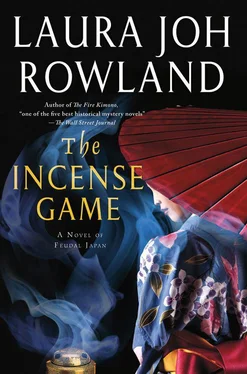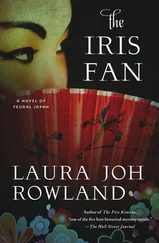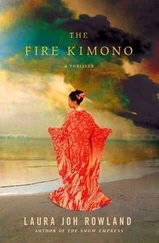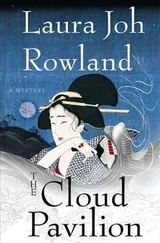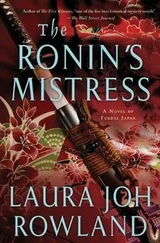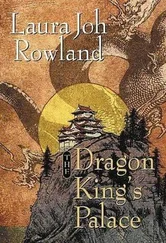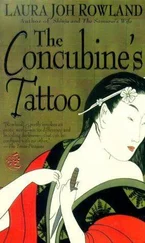Laura Rowland - The Incense Game
Здесь есть возможность читать онлайн «Laura Rowland - The Incense Game» весь текст электронной книги совершенно бесплатно (целиком полную версию без сокращений). В некоторых случаях можно слушать аудио, скачать через торрент в формате fb2 и присутствует краткое содержание. Жанр: Исторический детектив, на английском языке. Описание произведения, (предисловие) а так же отзывы посетителей доступны на портале библиотеки ЛибКат.
- Название:The Incense Game
- Автор:
- Жанр:
- Год:неизвестен
- ISBN:нет данных
- Рейтинг книги:3 / 5. Голосов: 1
-
Избранное:Добавить в избранное
- Отзывы:
-
Ваша оценка:
- 60
- 1
- 2
- 3
- 4
- 5
The Incense Game: краткое содержание, описание и аннотация
Предлагаем к чтению аннотацию, описание, краткое содержание или предисловие (зависит от того, что написал сам автор книги «The Incense Game»). Если вы не нашли необходимую информацию о книге — напишите в комментариях, мы постараемся отыскать её.
The Incense Game — читать онлайн бесплатно полную книгу (весь текст) целиком
Ниже представлен текст книги, разбитый по страницам. Система сохранения места последней прочитанной страницы, позволяет с удобством читать онлайн бесплатно книгу «The Incense Game», без необходимости каждый раз заново искать на чём Вы остановились. Поставьте закладку, и сможете в любой момент перейти на страницу, на которой закончили чтение.
Интервал:
Закладка:
“How have you been feeling lately?” the doctor asked Reiko.
“A little tired.” Reiko explained about her work.
“Are your monthly courses regular?”
Reiko started to say yes, but her mouth stayed open in abrupt, silent surprise. She remembered that shortly before the earthquake, her courses had been a few days late. After the earthquake, with all the turmoil, she’d forgotten. Now she realized that another month had come and gone. “I’ve missed two courses.”
“Ah.” The doctor palpated her abdomen with his fingers. “Your little girl will be getting a new baby brother or sister.”
Reiko had thought that Akiko and Masahiro were to be her only children. Although she was thankful to have them, she yearned to reexperience the joy of holding a new baby in her arms. She envied women who had big families, and she felt as if she’d let Sano down by giving him only two children, even though he never complained. Now she clasped her belly, which suddenly felt full and swollen. Her eyes welled with happiness.
“Don’t exert yourself,” the doctor warned. “How many years has it been since your daughter was born? And how many between her and your son? You aren’t particularly fertile. You should be careful not to lose this child.”
He prescribed herbal concoctions, to foster a healthy pregnancy, and a meat stew-normally prohibited by Buddhist dietary laws but allowed for medicinal purposes-to build up Reiko’s strength. After he left, Akiko crept under the quilt and snuggled against Reiko in a rare moment of closeness. Reiko hugged her daughter. But even as she lay smiling with pleasure, she thought of the many women whose children had been killed by the earthquake and fires, and she felt ashamed of her good fortune. She already missed her work in the tent camp. And now she looked forward to months of confinement, idleness, and boredom.
Reiko could hardly wait for the baby’s birth and her return to action.
Edo jail was missing several watchtowers. Those, and much of the surrounding wall, had crumbled into the moat. The dungeon inside stood exposed, minus half its roof and walls. Prisoners were housed in a makeshift jail elsewhere. The bridge was gone. Hirata and the driver had to carry the bodies one by one across a new, flimsy plank bridge that couldn’t bear the weight of horses, oxen, or carts. The sentries waved Hirata through the gate with barely a glance at the wrapped corpses; they’d seen many earthquake victims brought in, and assumed these were more of the usual.
Inside, Hirata and the driver set the bodies in a courtyard by a row of corpses covered with blankets. The morgue was a dumping ground for bodies unidentified and unclaimed. The stench of death was powerful. Hirata dismissed the driver, then looked around. Tarps draped the morgue where one of its scabby plaster walls and part of its shaggy thatched roof had fallen. The custodian shuffled out the door, a white-haired old man with a stern face, dressed in the traditional dark blue coat of a physician.
“Hirata- san,” he said. His bushy brows rose in surprise; he smiled.
“Greetings, Dr. Ito,” Hirata said.
Once an esteemed physician to the emperor’s court in Miyako, Dr. Ito had been arrested for practicing science learned from Dutch traders. Convicted and sentenced to lifetime servitude in the morgue, he could conduct his experiments without fear of punishment. No one assigned to enforce the law against foreign science ever came to check on him; repugnance and the fear of spiritual pollution and physical disease kept most people away.
Now Dr. Ito was well past eighty. Although his figure had shrunken and his shoulders curved, his eyes had lost none of their keen, bright intelligence. “What have you brought me? More victims of the earthquake?”
“Perhaps they aren’t,” Hirata said.
Dr. Ito nodded. He understood that Hirata had come at Sano’s behest and knew the reason why. “We’d better bring them inside. We’ll talk there.”
Officialdom didn’t care what Dr. Ito did, but it was a different matter for Sano and Hirata. If the authorities got wind of their association with Dr. Ito’s science, they would be exiled. Not even men of their high position could break the strict law against foreign science and escape the consequences. Hirata took the risk for Sano, who sought Dr. Ito’s assistance only in rare, special cases.
Dr. Ito called to his assistant. Mura came out of the morgue, a thin but sturdy figure clad in unbleached muslin coat, kimono, and trousers. Silver hair gave his square, clever face a distinguished appearance at odds with his social position. Mura was an eta, a member of the hereditary outcast class that was linked to occupations such as butchering and leather-tanning, which bore the physical and spiritual taint of death. Shunned by other citizens, the eta did dirty work, like collecting garbage and night soil. They also served in Edo Jail as wardens, corpse handlers, torturers, and executioners. Dr. Ito and Mura had become friends across class lines, and Mura did the physical work associated with Dr. Ito’s studies.
Mura helped Hirata carry the bodies into the morgue and lay them on the tables. The morgue was cluttered and crowded; the cabinets, the stone troughs for washing the dead, and sundry equipment had been pushed away from the damaged section. The tarp flapped in the wind. Dr. Ito lit lanterns whose flames wavered in the cold drafts.
“Who are they?” Dr. Ito moved toward the bodies.
“An incense teacher named Usugumo. And her two pupils.” Hirata described how and where the women had been found. “The pupils appear to be members of the Hosokawa clan. Sano- san has gone to the Hosokawa estate to break the news to the family.”
“He believes that these women were murdered?”
“Yes. Poisoned.”
Mura unwrapped the bodies. In their contorted poses, the women looked even more bizarrely lifelike than before. Their hair stirred in the draft. The lanterns lit sparkles in their terrible red eyes. Hirata almost expected them to stretch their stiff limbs and sit up.
“Ah.” As Dr. Ito beheld the women, his eyebrows flew up in astonishment, then slanted downward in an expression of concern. “I shall have to perform an internal examination. On which one would you prefer?”
“The teacher.” Hirata figured it was wise not to mutilate the bodies of persons from such an important clan as the Hosokawa.
Mura fetched a long knife with a sharp steel blade. He cut the stained, dusty, dark green kimono and white under-robe off Usugumo, then positioned her on her back. She lay naked, arms bent upward, knees flexed. Her skin was white, smooth for a woman her age, her breasts and stomach firm. Her open mouth in her triangular cat’s face made her look as if she were hissing. Her red eyes glared as if she took offense at this rude treatment. Hirata shivered.
Directed by Dr. Ito, Mura made a cut that went straight down the middle of Usugumo’s chest then branched in two diagonal cuts across her stomach. He peeled back the flesh. When he opened her abdominal cavity, the strong, pungent odor of garlic arose.
“That’s one sign,” Dr. Ito said.
“Of what?” Hirata asked.
“Arsenic. It’s a mineral that’s been used in Chinese medicine for thousands of years, in small doses. In larger doses, it kills. It also delays putrefaction. The Koreans blend it into a drink that’s given to criminals of high political status who’ve been sentenced to death. More commonly, it’s a poison for rats.” Dr. Ito leaned over Usugumo’s body, his eyes agleam with fascination, and pointed. “Observe the other signs.”
Her abdominal cavity was as bright yellow as if coated with yellow paint. Hirata stared, amazed. He’d seen plenty of bodies eviscerated during combat, but nothing like this.
Читать дальшеИнтервал:
Закладка:
Похожие книги на «The Incense Game»
Представляем Вашему вниманию похожие книги на «The Incense Game» списком для выбора. Мы отобрали схожую по названию и смыслу литературу в надежде предоставить читателям больше вариантов отыскать новые, интересные, ещё непрочитанные произведения.
Обсуждение, отзывы о книге «The Incense Game» и просто собственные мнения читателей. Оставьте ваши комментарии, напишите, что Вы думаете о произведении, его смысле или главных героях. Укажите что конкретно понравилось, а что нет, и почему Вы так считаете.
